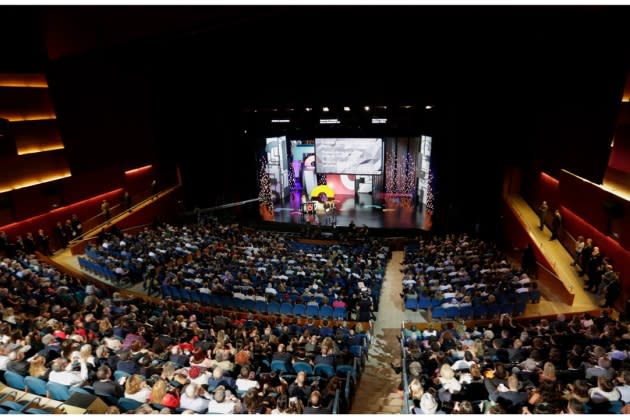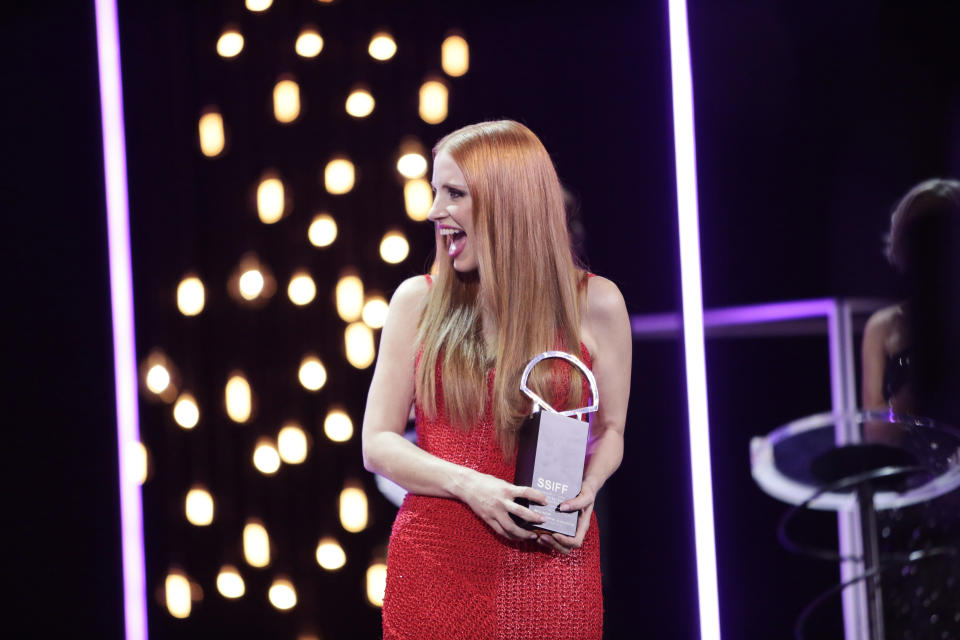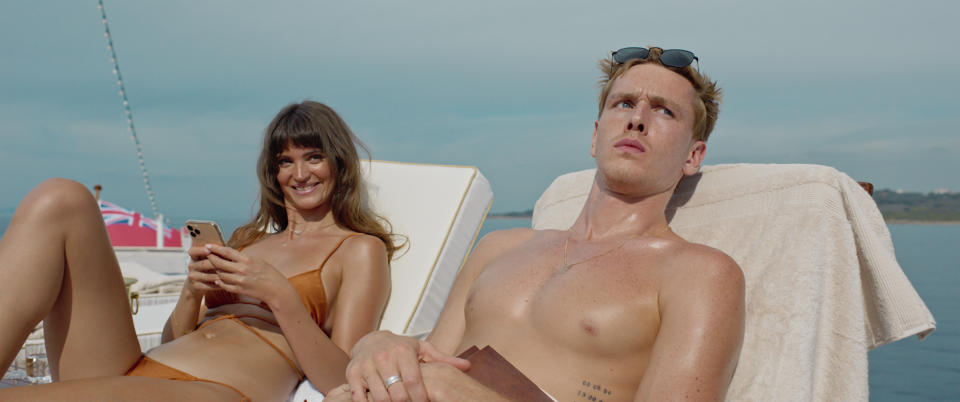Festival In Focus: San Sebastian Kicks Into Gear As Spain Enjoys Industry Boom

With the Berlin Film Festival’s Golden Bear awarded to Spanish director Carla Simón and four of the country’s titles featuring in competition at Cannes, there’s a quiet air of confidence among Spanish industry professionals, including José Luis Rebordinos, director of the San Sebastian Film Festival.
“This has been the best year for Spanish cinema,” Rebordinos tells Deadline shortly after revealing the line-up for San Sebastian’s latest edition, running from September 16-24.
More from Deadline
Festival In Focus: San Sebastian Ramps Up Industry Components For 70th Edition
Glenn Close Pulls Out Of San Sebastian Jury Due To Family Emergency
San Sebastian To Screen Ulrich Siedl's 'Sparta' After Toronto Drops Film Over Der Spiegel Report
This year the prominent Spanish festival, celebrating its 70th edition, kicks into gear with some 200 films across its six competitive and seven non-competitive sections. The selection will be bookended by Friday night’s opening film Prison 77 (Modelo 77), from Spanish filmmaker Alberto Rodríguez, and Neil Jordan’s latest film Marlowe, starring Diane Kruger and Liam Neeson, which will close the festival. The full lineup includes the European Premiere of Chilean filmmaker Sebastián Lelio’s The Wonder, starring Florence Pugh, and South Korean filmmaker Hong Sang-soo’s latest offering, Top/Walk Up. The festival is also understood to be proceeding with its inclusion of Sparta, Ulrich Seidl’s controversial drama which was pulled last week by the Toronto International Film Festival following allegations of impropriety.

Photo courtesy of Montse Castillo
This year, San Sebastian returns to 100% capacity in cinemas this year, with a stacked program of parties, events, and seminars with the participation of international guests and delegates. While the festival still held physical screenings during the pandemic, seating and screening numbers were limited, and there were very few guests from overseas.
“The main challenge has been trying to put together all the financing,” Rebordinos tells Deadline of this year’s preparations. “In the last two years, some of our sponsors didn’t sign with us because they were attached to specific physical events. So if there’s no event, there’s no sponsor. But this year we have managed to get back most of our sponsors, and we even raised a little bit more money than we had in previous years.”
As a public-facing festival, Rebordinos and his team have the added challenge of luring audiences back to theaters, with a large portion of the festival’s income comprised of box office stubs. The festival has long been the jumping off point for many films that go on to play in theatres in Spain, with the November – December window typically being a good time for admissions into Spanish theatres. This year, says Rebordinos, “the situation is very bizarre,” pointing to uncertainty for the future health of the cinema business.
Elsewhere, San Sebastian is set to hand out four honorary Donostia Awards as part of the anniversary celebrations. Two recipients are still to be announced, but Juliette Binoche will pass through the festival’s Kursaal Auditorium on September 18, where she’ll pick up the career achievement prize before introducing her Berlinale winner, Both Sides of The Blade. David Cronenberg will follow on September 21, and he will present his controversial 2022 Palme d’Or contender, Crimes of the Future. Other buzzy fall titles like Olivia Wilde’s Don’t Worry Darling and Ruben Östlund’s Palme d’Or winner Triangle of Sadness will screen as part of Perlak, San Sebastian’s sidebar section dedicated to titles that have screened at other festivals.

Neon
“It’s okay for us to have some films from other festivals in our lineup — it’s not a problem,” Rebordinos says of the popular sidebar. “There are a lot of festivals and we compete between ourselves. But we are lucky because we’re not one of the big three. We can do things differently. For us, it’s important to be a very strong festival with European and Latin American films. We always look to the Latin American industry. And with Latin American films we can compete with other festivals. With North American films it’s impossible.”
San Sebastian has long established itself as the key meeting point between Europe and Latin America, with sections in both its industry and festival programs dedicated to the region. This year the festival has three Latin American films in the Official Selection. There is also a strong local presence with four Spanish productions in competition, two of which are Basque co-productions, the first time this has happened in the festival’s history.
“We have four films in the main competition, but we could have had six with no problem,” Rebordinos says. “One of the surprises of the festival will for sure be Suro, the film by Mikel Gurrea. It’s a first-time film and a Basque film in the main selection. I’m sure people will speak a lot about this director after the festival.”
On the industry side, San Sebastian will launch its new Creative Investors’ Conference, co-organized with CAA Media Finance. The conference will see producers from 10 Spanish productions or co-productions pitch their projects to a roundtable of top industry executives, including MUBI’s Bobby Allen, Piers Wenger of A24, Netflix’s Teresa Moneo, and Focus Features’s Kiska Higgs. Roeg Sutherland, Benjamin Kramer, and Sarah Schweitzman of CAA Media Finance will moderate. The conference will run from September 19 – 20.
However, the festival’s anniversary celebrations will continue into the new year, with Zinemaldia 70, a large-scale restoration project, scheduled to be unveiled in the coming months. The festival launched the project in 2018 alongside researchers from the local film school Elías Querejeta Zine Eskola, who have set about cataloging and digitalizing thousands of photographs, posters, press materials, magazines, and books from throughout the festival’s history.
“No one has properly handled this stuff for 66 years,” Rebordinos says. “It’s very expensive to work with archive material, but we can do it because we have very big sponsorship from the Spanish lottery.”
The historical materials will also receive a new physical home at the Tabakalera, the imposing contemporary arts center and official base of the festival since its refurbishment in 2015. Researchers will be able to sift through the documents and explore the little-known parts of the festival’s history, including the dark period of censorship under Franco and the gradual move to democratization following his death.
“We think it will be the biggest archive of film in Spain,” Rebordinos says.
Best of Deadline
NFL 2022 Schedule: Primetime TV Games, Thanksgiving Menu, Christmas Tripleheader & More
The Queen Onscreen: 15 Actresses (And Actors) Who've Played Elizabeth II In Film And On TV
'Blonde' Premiere Photo Gallery: Ana de Armas Channels Marilyn Monroe At Venice Film Festival
Sign up for Deadline's Newsletter. For the latest news, follow us on Facebook, Twitter, and Instagram.

